On the final day of 1982-83 season there were two remarkable
games which created headlines in their own contrasting way. They concerned promotion and relegation and
held implications for each losing side, which affected them for several years.
Saturday 14th
May 1983
Derby County v Fulham
Fulham had not been seen in England’s top division since 1968. Between 1971-80 they had been in the Second Division, until relegation at the end of 1979-80 season saw them lose patience with manager Bobby Campbell, after 4 years. His replacement was Malcolm MacDonald.
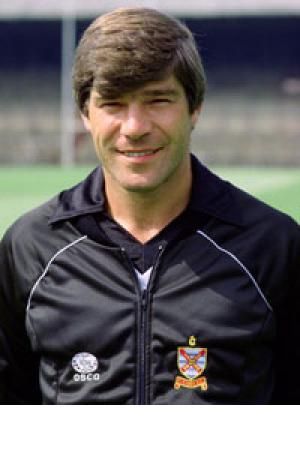
MacDonald was one of the most explosive centre-forwards in
English football during the 70’s. He
started his career at Fulham when Bobby Robson signed him, but he later went
onto enjoy successful careers with Newcastle
and Arsenal. He still holds the record
for scoring 5 goals in an international match for England
(v Cyprus,
1975), and these performances earned him the nickname ‘Supermac’. Fulham was his first managerial appointment
having recently finished his playing career.
Within two years MacDonald had returned them to Second
Division football. The following season
saw Fulham blaze a trail in their bid for promotion back to the First
Division. Fulham were in financial
difficulty and MacDonald made no secret of the fact he had assembled a
competitive side without buying a player and had relied on youth players and
free transfers.
Players such as Ray
Houghton and Paul Parker began to
make their mark under MacDonald. They
played alongside players such as Gerry
Peyton (Republic of Ireland),
Gordon Davies, Jeff Hopkins (both Wales),
Kevin Lock and Tony Gale.

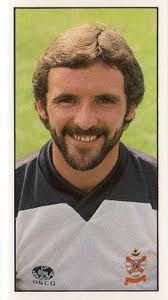
Tony Gale Gordon Davies
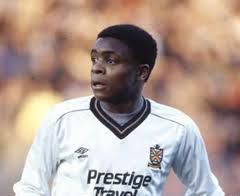
By the beginning of February Fulham were 3rd,
3pts behind leaders, Wolves. They were also 11pts ahead of Leicester City in 4th
place. But Fulham then started to
wobble. They won just 5 of next 15 games
and lost 3 in a row, including losing at home to Leicester,
0-1.
When they were beaten by Leicester,
0-1 through an Ian Wilson goal, the lead was down to just 2pts. Leicester’s 15 game
run from February was 8 wins, 6 draws 1 defeat and unbeaten in 14. Their strike-force was two young players who
went onto win many honours in the game, Gary
Lineker and Alan Smith.

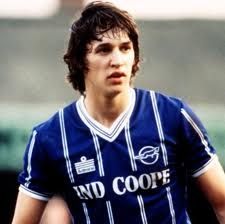
Alan Smith Gary Lineker
Fulham would lose their next two matches, but Leicester could only draw theirs, which was enough to take them above The Cottagers on goal difference.
For Fulham’s final home match against Carlisle,
MacDonald took the unusual step of addressing the crowd before the game through
the public address system. It seemed the
pressure beginning to tell on Fulham as MacDonald called the game ‘the most
important match in post-war history of Fulham Football Club’. Fulham won 2-0. Leicester also won at Oldham
which set up a dramatic final day.
Leicester were at home to bottom club
Burnley, and
Fulham had to travel to Derby.
Derby County
were under the guidance of Peter Taylor,
who as assistant to Brian Clough, had guided the club to their first ever
League Championship in 1972. He was back
at the club on his own, and trying to return them to their glory days. He’d bought ex-Forest players, Kenny Burns and Archie Gemmill, along with installing Roy McFarland as his assistant.
McFarland was Derby’s
captain in their title-winning season a decade before.
Mid January Derby were 9pts from safety at the bottom of the
table, then 15 games unbeaten helped them climb away from the relegation zone
before 2 defeats had them worrying about who was below them. They approached the final game of the season
needing a win to guarantee their safety.
A draw, and they may stay up on goal difference, but were they prepared
to take the chance?
For Burnley, they too needed a
win. They had managed to put a
mini-revival together with 1 defeat in their previous 7 matches, but they were
staring down the barrel. They had to
travel to Filbert Street
and try and come away with a win, not easy given Leicester
were on a run of losing just 1 in their last 12 home games.
The drama was centred purely at The Baseball Ground.
The atmosphere at ground could be considered
‘poisonous’. Clough used to use this to
his advantage when he was manager of Derby,
the fact that the proximity of the crowd could intimidate opponents. Early on, Fulham striker Gordon Davies was
bundled over in area but no penalty.
Davies didn’t really protest. At
the other end, Mike Brolly headed Emson’s cross and it looped onto crossbar and
fell under Peyton’s legs. He could
easily have gone in but it didn’t.
During the first half, Fulham full-back Jeff Hopkins was
booked for kicking Derby’s Bobby
Davison in the ribs as he goes up for a header.
This immediately incensed the home crowd. Fulham went close again when Davies seemed to
be pushed in the area but his header was deflected for a corner. The only other chance of note was when Derby
winger Paul Emson took on Hopkins
down the left and his cross just went over the bar onto the roof of the net.
No goals in either game by half-time and at this stage it
was Leicester who were going up. Leicester
had been relegated from the First Division back in 1978 when Frank McLintock was in charge of a team
who scored just 26 goals and only won 5 games all season. They bounced back up as Second Division
Champions in 1980, only to go straight back down again. Players such as former Man Utd midfielder, Gerry Daly, former Partick striker, Jim Melrose, Kevin MacDonald (future
double winner with Liverpool), Steve Lynex and Mark
Wallington were combining with Smith and Lineker to put them on the brink
of promotion once again.
Early in second half, Derby
midfielder, Paul Hooks has a swing
at Hopkins and Kenny Burns also
steps in. It starts to get a bit nasty
and the crowd is whipped up further.
Neither side is able to make the breakthrough until 15 minutes to go,
Emson’s right footed cross from the left found Mike Brolly on the far side of the area. Brolly headed it back where he found Davison
on penalty spot and he volleyed into roof of net. Cue invasion of the pitch by the vociferous crowd.
The home fans started sing ‘staying up’. As the game was moving into the final 10
minutes police horses were seen on the touchline, which appeared to be a bid to
stem any trouble. Gradually fans climb
over advertising boards & stand on touchline. Right behind Steve Cherry in the Derby
goal fans are several rows deep around the net, almost encroaching over the
line onto the pitch. Davies has a chance
when he heads straight into Cherry’s hands and fan walks on to pat the keeper
on back.
In last couple of minutes, Houghton has a shot from outside the
area and it is just tipped over by Cherry.
Again a pat on back from a fan. Lewington
went to take the corner and had to move fans out of way just so he could take the
kick. By now fans fill the touchline all
the way round the pitch. Terracing at
one end of the ground is completely empty as fans are all around pitch. It seemed that the police were helpless to be
able to do anything about it, despite being in evidence in the ground.
In the final minutes the ball is out on the Fulham left
wing. Robert Wilson runs down the
wing, twists and turns Derby
defender and then it suddenly kicked by one of the supporters. Wilson
stops, linesman flags but nothing is done about the fans. Fulham players complain to the ref who just decides to solve it all with a
drop-ball. The public address system is
now calling for fans to retreat, but they’re not listening.
Fulham keeper, Gerry Peyton then kicks ball down field and the
ref blows for a free-kick, but the crowd are convinced it’s the final
whistle. There is another invasion and
the whole pitch is covered, but there is still time left to play. Apparently, there were still another 78
seconds left. The players struggle to
get off pitch, as Derby fans are
ecstatic their team has avoided relegation.
For the Fulham fans, news came through of the result in the other game
and their hopes were dashed.
Leicester drew 0-0 with Burnley
and had looked as if they’d confirmed promotion. It also looked like relegation for a Burnley
team who included a young Lee Dixon,
just making his way in the game.
Lee Dixon
The controversy soon began. Fulham made an official complaint and appealed for the game to be replayed. Manager MacDonald was particularly angry. After the game, he said the Derby chairman ‘intimated he would be prepared to play a replay’. He went onto say the referee had ‘stated 90 minutes hadn’t been completed’. When asked why they didn’t try and get the ref to play the extra minutes, he replied ‘we couldn’t field 11 players if we’d come back out, Jeff Hopkins was badly assaulted, his shirt ripped off his back and he had been punched. The lad was in total shock’.
The controversy soon began. Fulham made an official complaint and appealed for the game to be replayed. Manager MacDonald was particularly angry. After the game, he said the Derby chairman ‘intimated he would be prepared to play a replay’. He went onto say the referee had ‘stated 90 minutes hadn’t been completed’. When asked why they didn’t try and get the ref to play the extra minutes, he replied ‘we couldn’t field 11 players if we’d come back out, Jeff Hopkins was badly assaulted, his shirt ripped off his back and he had been punched. The lad was in total shock’.
So by that evening it was unclear who was going up. The FA announced they would have an enquiry
to look into the events at The Baseball Ground.
Ironically, the result had been irrelevant after Leicester’s
draw and some even scoffed at the idea of them scoring 2 goals at the end of
the game, but this was pre-1999 with Sheringham, Solskjaer etc. What was certainly true is the impossible
atmosphere the Fulham side had to endure in the final moments of the game and
that some of the players were attacked as they left the pitch.
The following week the FA decided to uphold the Derby
result and deny a replay, and so Leicester were
promoted. Fulham were unhappy about it
and it’s not certain whether MacDonald ever got over it. The following season they finished mid-table
and MacDonald resigned, the team was broken up and finished bottom of the table
in 1986 and by 1994 they were in the 4th tier of English football. It wouldn’t be until 2001 when Fulham finally
returned to England’s
top division.
Leicester remained in the First
Division until yet another relegation in 1987, but by then Smith had left for
Arsenal and Lineker for Everton and then Barcelona,
before returning to English football with Tottenham.
Looking back it seems inconceivable as to why the game
wasn’t stopped until the crowd returned to the stands. Also with such a visible police presence it
seems odd why they were completely powerless to stop the invading fans. But these were days when football authorities
were scared of groups of supporters intent on causing trouble. There was still plenty more pain for English
football grounds to endure before the collective strength would force that kind
of behaviour outside

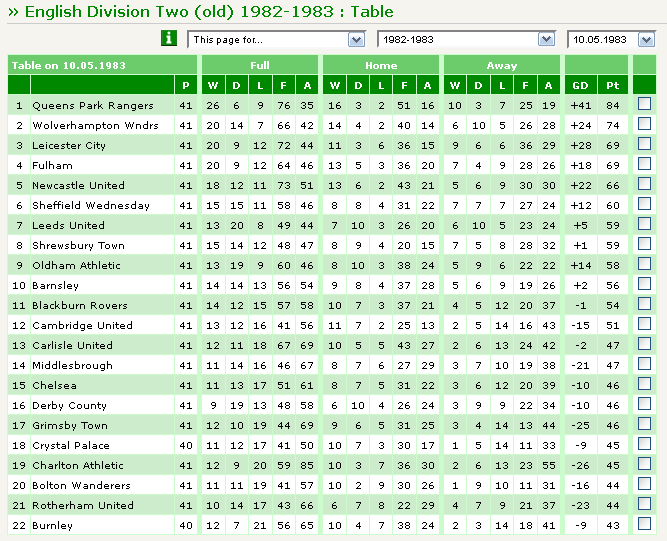
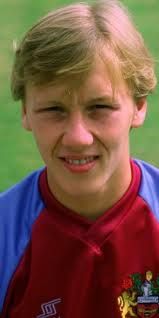
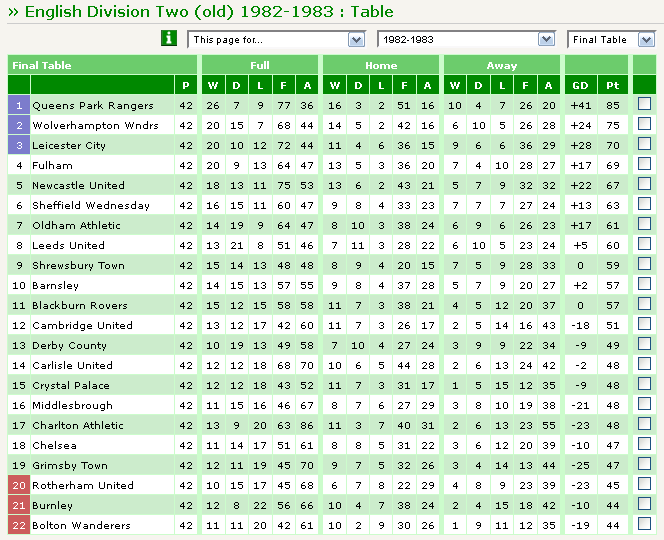
No comments:
Post a Comment